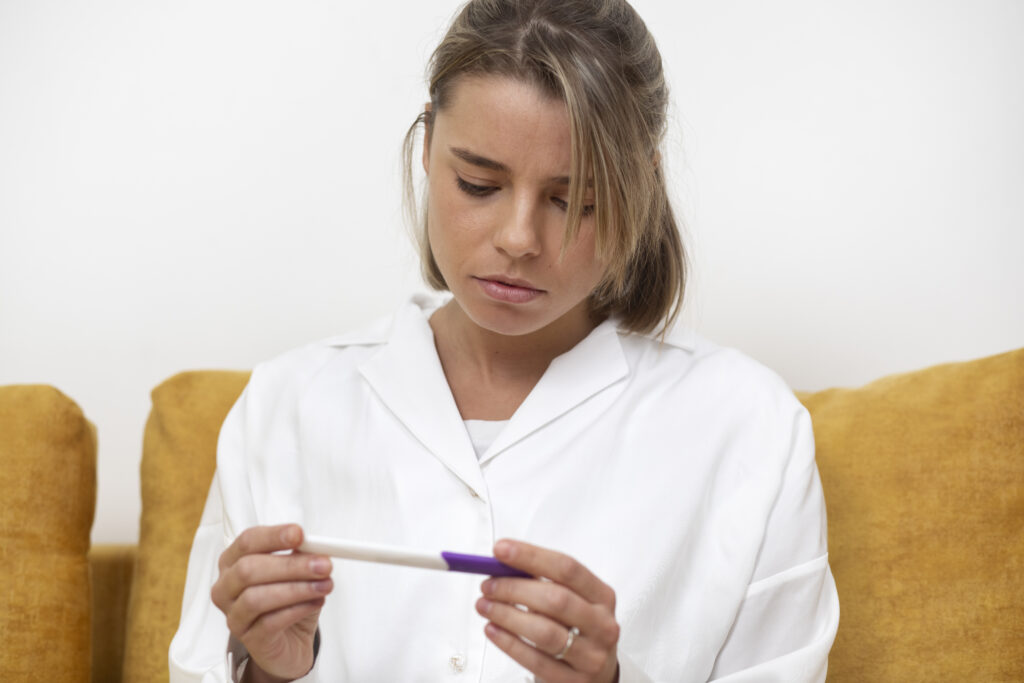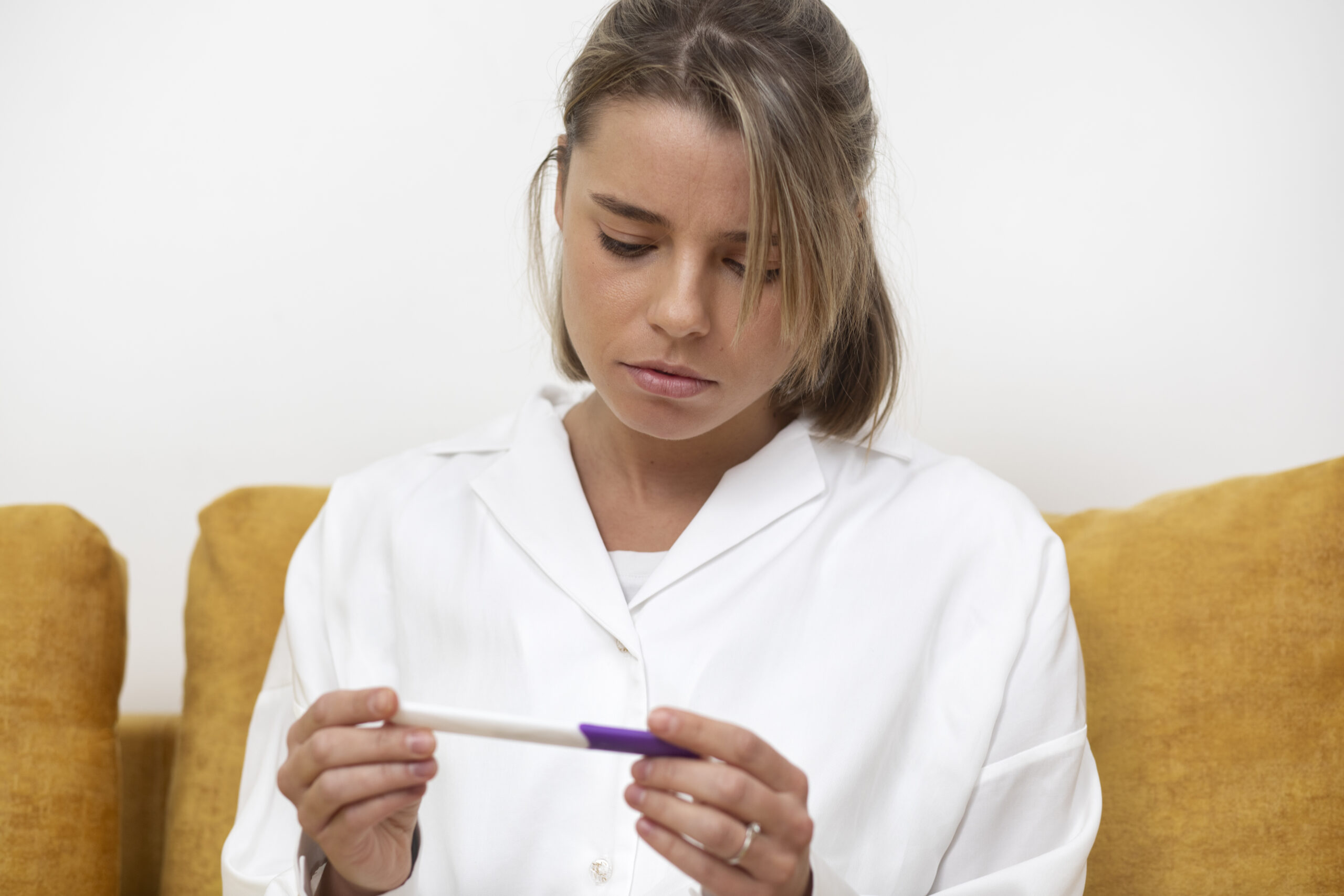Learn how soon a pregnancy test can read positive. Discover the best times for testing, types of tests, and factors affecting accuracy.
For many women, the anticipation of a missed period or changes in their body can lead to questions about whether they might be pregnant. Pregnancy tests are often the first step in finding answers, but understanding when a test can reliably read positive is essential for those eager to confirm their pregnancy. This article will explore how early pregnancy tests work, the factors that influence their accuracy, and the best times to take a test.

Understanding Pregnancy Tests
How Pregnancy Tests Work
Pregnancy tests function by detecting the presence of human chorionic gonadotropin (hCG) in urine or blood. This hormone is produced shortly after a fertilized egg attaches to the uterine lining. Home pregnancy tests (HPTs) are designed to detect hCG in urine, while blood tests, which are usually conducted in a healthcare setting, can measure hCG levels more accurately.
Types of Pregnancy Tests
There are two primary types of pregnancy tests:
- Home Pregnancy Tests (HPTs): These tests can be purchased over the counter and used at home. They are typically easy to use and provide results within minutes. Most HPTs are sensitive enough to detect hCG levels as low as 20-25 mIU/mL, allowing for early detection of pregnancy.
- Blood Tests: Conducted in a healthcare setting, blood tests can detect lower levels of hCG than home tests. There are two types of blood tests: qualitative, which simply determines if hCG is present, and quantitative, which measures the exact amount of hCG in the blood.
When to Take a Pregnancy Test
Timing is Key
The timing of taking a pregnancy test is crucial for accurate results. Most experts recommend waiting until the first day of a missed period for the best chance of getting a positive result. This timing allows hCG levels to rise sufficiently for detection.
Early Testing
Some women may choose to test before their missed period, especially if they are experiencing early pregnancy symptoms. Many modern HPTs claim to provide accurate results a few days before the expected period. However, testing early may lead to false negatives, as hCG levels may not be high enough to detect at that point.
Factors Affecting Test Results
Several factors can influence the accuracy of pregnancy tests:
- Sensitivity of the Test: Different tests have varying sensitivities to hCG. Some are designed to detect pregnancy earlier than others.
- Timing of Ovulation: If a woman has irregular cycles or ovulates later than expected, she may not have enough hCG in her system by the time she tests.
- Dilution of Urine: Testing with diluted urine, such as after consuming a lot of fluids, can also affect results. Testing first thing in the morning when urine is concentrated can provide the most accurate readings.
Interpreting Pregnancy Test Results
Positive Results
A positive result on a pregnancy test typically indicates that hCG is present in the urine, suggesting that a woman is pregnant. However, it is advisable to confirm the results with a healthcare provider, who may perform a blood test or ultrasound to verify the pregnancy and assess its progress.
Negative Results
A negative result may mean that a woman is not pregnant or that the test was taken too early. If symptoms persist or if there is still a suspicion of pregnancy, retesting a few days later is recommended.
False Positives and Negatives
Understanding the potential for false positives and negatives is essential:
- False Positives: Although rare, false positives can occur due to certain medical conditions, medications containing hCG, or improper test use.
- False Negatives: More common than false positives, these can occur if a test is taken too early or if the test is not sensitive enough to detect low hCG levels.
Preparing for a Pregnancy Test
Choosing the Right Test
When selecting a pregnancy test, consider the following factors:
- Sensitivity: Choose a test known for its sensitivity to early pregnancy detection.
- User Reviews: Research different brands and read user reviews for reliability and ease of use.
Reading the Instructions
To ensure accurate results, carefully read and follow the instructions provided with the pregnancy test. Each brand may have different steps, including how long to wait for results and how to interpret them.
Internal Resources for Further Reading
Explore our internal resources for additional insights into pregnancy-related topics:
- Pregnancy Testing: Comprehensive information on various pregnancy testing methods and their effectiveness.
- Pregnancy Symptoms: Detailed information about symptoms experienced during pregnancy.
- Postpartum Care: Resources on caring for oneself after childbirth.
External Resources for Additional Information
For more comprehensive insights and support regarding pregnancy testing and related topics, consider visiting these reputable external resources:
- American Pregnancy Association: A reliable source of information about pregnancy, prenatal care, and testing. (Visit: American Pregnancy Association)
- Mayo Clinic: Offers expert advice on pregnancy testing, symptoms, and overall maternal health. (Visit: Mayo Clinic)
- WebMD: A comprehensive resource for understanding pregnancy tests and related health information. (Visit: WebMD)
Frequently Asked Questions (FAQs)
How soon can a pregnancy test read positive?
Most home pregnancy tests can read positive about a week after a missed period. Some sensitive tests may provide accurate results a few days earlier.
Can you get a false negative on a pregnancy test?
Yes, false negatives can occur if the test is taken too early or if hCG levels are too low for detection.
When is the best time to take a pregnancy test?
The best time to take a pregnancy test is on the first day of a missed period. For early testing, using first-morning urine can improve accuracy.
What should I do if I get a positive result?
If you receive a positive result, schedule an appointment with a healthcare provider for confirmation and to discuss next steps.
Conclusion
Understanding when a pregnancy test can read positive is crucial for women looking to confirm their pregnancy. Timing, testing methods, and accurate interpretation of results play significant roles in this process.
By being informed about early testing and the factors affecting accuracy, women can take proactive steps in their reproductive health journey. Whether you’re eagerly anticipating a positive result or preparing for the next steps in your pregnancy, knowing how to navigate the testing process can empower you to make informed decisions for yourself and your family.
